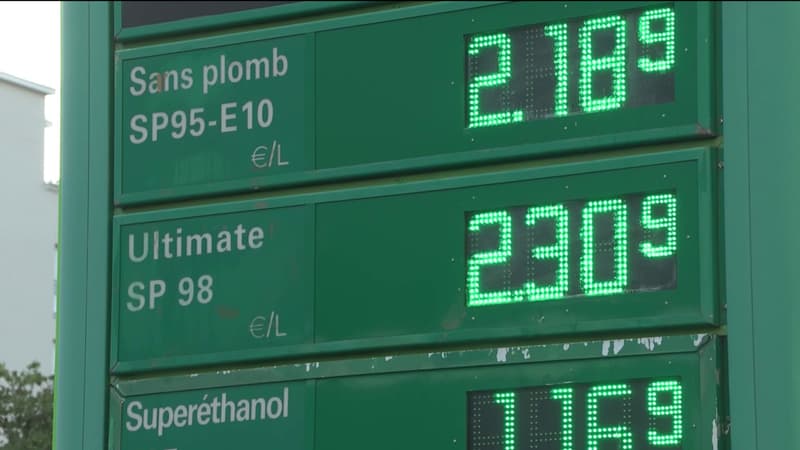Since the beginning of July, diesel has risen an average of 17 cents and gasoline 11 cents. Enough to find historically high levels in France with the two fuels that in some stations exceed the symbolic bar of 2 euros.
However, we remain at levels well below certain periods of last year, with the March and June 2022 peaks clearly visible in the graph below, which shows the evolution of diesel and SP95-E10 prices since September 2021. .
Crude prices, main factor
But why such an increase? “The increase in fuel prices in France in recent weeks is mainly due to the rise in crude oil prices on the world market: between the end of June and August 9, the price of North Sea Brent rose between 20 and 21% and in the same period diesel increased by around 10% ”, explains Francis Perrin, specialist in energy issues at Iris, on BFMTV.
While we often point to the heavy burden of taxes, taxes ultimately play a buffer role, as this expert reminds us:
“It should be remembered that diesel and gasoline are products derived from petroleum and, when there is a sharp rise in the price of crude oil on the world market, fuel prices in France, Europe or elsewhere necessarily rise, as do the price of crude (…) because there are taxes on fuel prices, these taxes are very important, at least half the price, and these taxes have not risen in recent weeks, so they kind of cushion the rise in crude oil prices.”
A seasonal effect?
Supply and demand must also be integrated into this reasoning. On the one hand, producing countries are halting production precisely to maintain a high crude oil price. This is the case with the recent decisions by Saudi Arabia and Russia. On the other hand, the demand is strong, with departures for the summer holidays and many motorists on the roads and air transport that is recovering color.
“The sharp rise in fuel prices began at the end of June/early July, at the same time that crude oil prices were taking off on the world market, after having remained relatively stable in the previous weeks,” underlines Francis Perrin.
Another factor currently at play: the current good health of the global economy, which generally favors an increase in crude oil prices. Holiday departures aside, global oil demand is currently breaking records:
“By 2023, the world will consume more oil than it has ever consumed in history, so this is causing a sharp increase in demand and upward pressure on prices.”
We can also mention the exchange effects, knowing that a barrel of oil is sold in dollars, but that European countries like France buy it in euros.
“The euro has improved a little against the dollar in recent weeks, this does not make up for everything, but it can play a little,” underlines Philippe Chalmin, economist and professor at Paris-Dauphine.
What will happen in the coming weeks?
This raw materials expert also recalls that one of the main distributors in France, TotalEnergies, has set a ceiling at 1.99 euros per liter, even on highways, which will necessarily block prices in the event of further rises in crude oil.
It is still difficult to predict the evolution of fuel prices in the coming weeks, but the context could change quickly, particularly with the deterioration of the economic situation in China.
“In recent days, Brent prices have fallen as oil traders in the markets are concerned about the state of the Chinese economy, which is experiencing an economic slowdown, as evidenced by several recent economic indices that are not very good. The Chinese government talks about a possible reactivation, but we do not see concrete measures at the moment, and China is a heavyweight in the world oil market, the second consumer in the world after the United States and the first importer, ”analyzes Francisco . Perrin.
Clearly, strong demand associated with a limited supply of crude oil will continue to put upward pressure on fuel prices. A pressure that, therefore, could be released in part, if the difficulties of the Chinese economy are confirmed in the coming weeks.
Source: BFM TV


